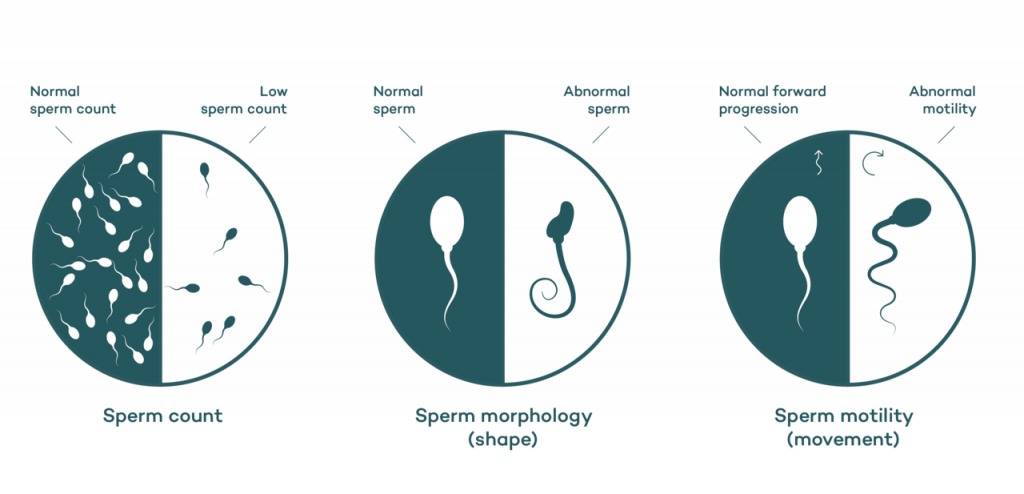It’s widely acknowledged that women should reduce their alcohol consumption when trying to fall pregnant and stop drinking completely when they do, but should blokes give up the beers to improve a couple’s chances of conceiving?
Here’s what you need to know about alcohol consumption and male fertility.
Does alcohol affect fertility in males?
Male fertility generally depends on the quantity and quality of your sperm. If the number of sperm you ejaculate is low, or if the sperm are poor quality, it will be difficult (and in some cases impossible) to get pregnant. Sperm health can be influenced by a range of things including your genes, age, weight, and smoking status.
So, does alcohol affect sperm health and quality?
Research looking at whether alcohol consumption impacts sperm quality has been mixed — some studies suggest a negative effect, but others haven’t confirmed this. A 2017 meta-analysis of 17 studies found that occasional consumption does not have a negative impact, but daily alcohol intake has a detrimental effect on semen volume and morphology. A 2023 meta-analysis of 40 studies found alcohol intake reduced semen volume during each ejaculation, antioxidants and reproductive hormones in those who drank more than seven units per week, while moderate drinkers (less than seven units per week) saw no changes.

When it comes to conceiving, it’s not just your sperm quality that can influence your success.
You might think that managing your alcohol intake won’t mean much but putting yourself in the best position possible can help your chances. It’s also easier to cut back or stop drinking when the people around you are supportive, so going alcohol-free as well could be a help to your partner.
Preconception health for men
Your health can not only affect the chance of your partner falling pregnant but the future health of your baby. And excessive alcohol consumption can have a significant impact on your health. While consuming alcohol you’re at greater risk of falls, accidents, conflict, lowered inhibitions and risky behaviours.
The impact of overdoing alcohol doesn’t end when the hangover wears off — long-term alcohol consumption contributes to more than 200 different types of diseases and injury including cardiovascular disease, diabetes, cancer, liver disease, and mental health conditions such as anxiety and depression.
Critically for men — who make up 75% of suicides in Australia — alcohol is one of the most significant risk factors for self-harm.
Whether you’re trying to conceive or not, it’s likely worth taking a closer look at your drinking habits for the benefit of your overall wellbeing, but it could also help your fertility and the health of your family too.
How long after quitting drinking will sperm improve?
New sperm are produced every second but it takes two to three months to mature. So, changes to your drinking habits could take several weeks to affect your fertility.
What are the current alcohol guidelines?
The current guidelines recommend that to reduce the risk of alcohol-related harm over a lifetime, adults should drink no more than 10 standard drinks in a week and no more than four standard drinks in one day. Men are far more likely to drink at risky levels with one in four exceeding these recommendations.
Tips for reducing drinking
Reducing your drinking can help improve your mood, energy, sleep, waistline and bank balance.
Need a hand managing your drinking habits? Chat with your doctor.
What reduces male fertility?
Male infertility is usually caused by problems with sperm production, which can be related to hormonal problems, issues with testicular function or blockages in men’s reproductive systems. Many things can damage your sperm, including being overweight, smoking, older age and exposure to harmful chemicals.















